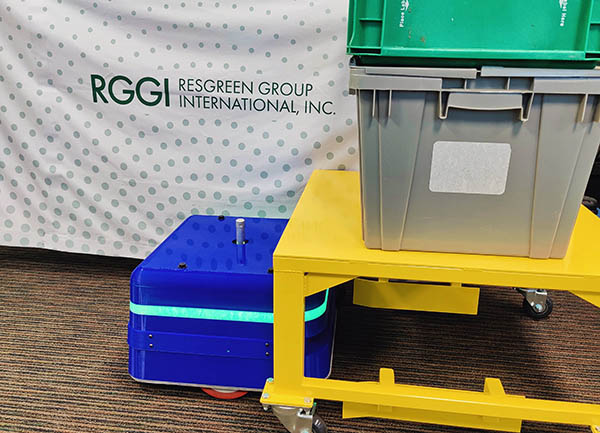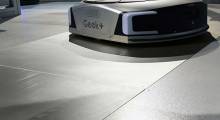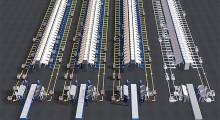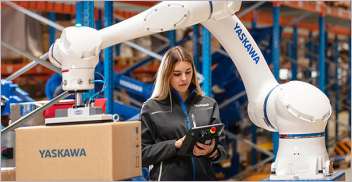Resgreen Group International Inc., or RGGI, announced that the pilot testing underway for its LilBuddy system demonstrates that the mobile robot is agile and can travel over uneven surfaces, both indoors and outdoors. It has also exceeded expectations for payload capacity.
“LilBuddy’s unique drive system of four omnidirectional casters and dual, high-torque differential-drive wheels makes this one of the most stable, sturdy, and nimble AMRs [autonomous mobile robots] on the market,” said Parsh Patel, CEO of RGGI.
Resgreen Group announced initial floor testing of LilBuddy early last month. The Shelby Township, Mich.-based company develops AMRs, automated guided vehicles (AGVs), and artificial intelligence robotics (AIR). It said that its engineers have years of experience in the material handling and robotics industries, leading to to significant intellectual property for the company.
RGGI also provides consulting services including back-end operational oversight, material handling assessment, workflow analysis, and steady-state yield management using AI, robotics, and management software. It also recently said that its PullBuddy AGVs are ready for large-scale production.
LilBuddy is maneuverable indoors or outdoors
Resgreen Group last week said “extensive testing of two important features” yielded positive results for LilBuddy. They demonstrated that the AMR is manueverable, thanks to four omnidirectional casters, and that it can travel over uneven surfaces both indoors and outdoors.
The casters use small, free-spinning roller wheels located on the outside diameter. This allows LilBuddy to change direction without the normal restrictions imposed by traditional casters, said RGGI.
Traditionally, omniwheels have replaced the drive-wheels on robots that can strafe or move sideways, noted the company. While strafing may provide some additional agility, omniwheels tend to hamper the ability for the robot to travel and stop on any grade, RGGI said.
LilBuddy features two high-torque, brushless-drive wheels with powerful electronic braking. RGGI claimed that this configuration provides “superior” performance by allowing zero-degree turning without the loss of traction and stable standing on graded inclines.
The AMR is also equipped with an independent shock system for each drive wheel, permitting stable travel over uneven surfaces and thresholds, said Resgreen Group. When paired with the mobility provided by the omnidirectional casters, LilBuddy can easily travel through a wide variety of environments, it added.
“Extensive testing continues to demonstrate LilBuddy experiencing no issue with crossing doorway thresholds, well-worn factory floors, and loading docks,” said the company.
Resgreen touts payload capacity, software
For payload, initial tests found that LilBuddy can carry more than 100 kg (220.4 lb.) and readily navigate through tight spaces. RGGI said yesterday that this proves the AMR is suitable for completing delivery of workpieces in the maze-like environments often found in machining centers and micro-distribution staging stations.
LilBuddy travels at up to 8.64 kph (2.4 m/s or 5.3 mph) while avoiding both static and dynamic obstacles. The AMR is more compact than RGGI's other vehicles, at 432 mm length x 432 mm width x 280 mm height (17 x 17 x 11 in.). For example, the robot can move through door openings with a width of only 800 mm (2.6 ft.), said the company.
In addition, the “hybrid” LilBuddy can follow magnetic tape like an AGV for routine paths, or it can use front and rear solid-state lidars to map the area and detect obtacles. Once the system learns the map, users can send it to any location with commands and triggers from BotWay and BotWay-connected devices.
Customers can also set up Routes, a series of waypoints and commands, with BotWay or a companion app to specify exact movements and commands in long distance travel or complex chains of events.
“This AMR, along with BotWay traffic management software and an onboard safety management system, provides an excellent value for product movement,” said Patel. “LilBuddy and BotWay are truly state-of-the-art, with growing possibilities within the Industry 4.0 atmosphere. We are proud to bring this innovative product to market.”
Article topics
Email Sign Up
















